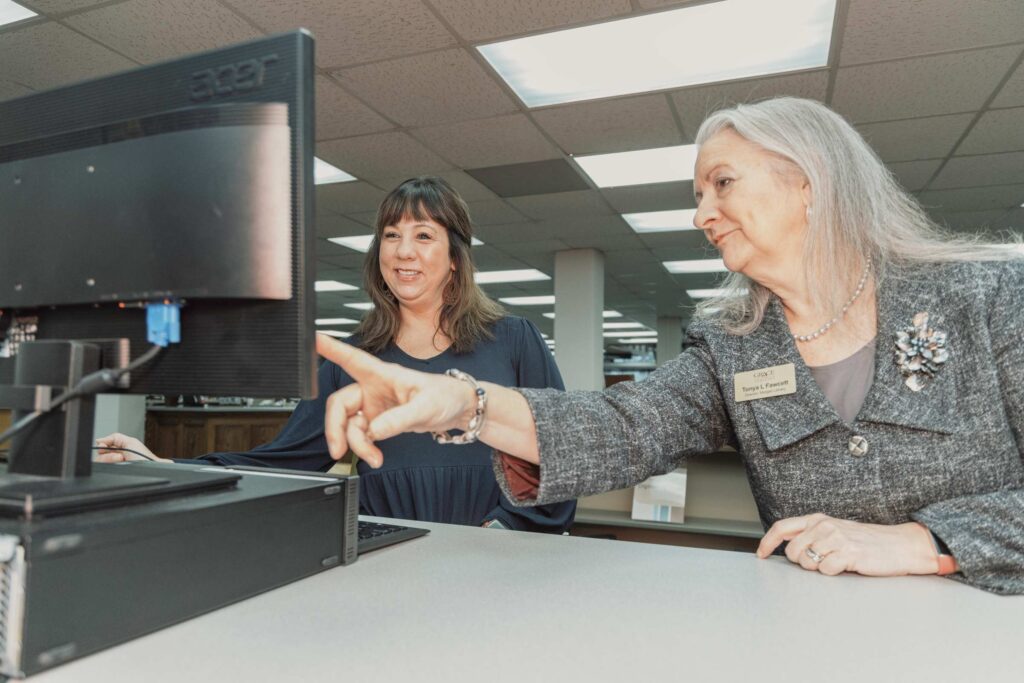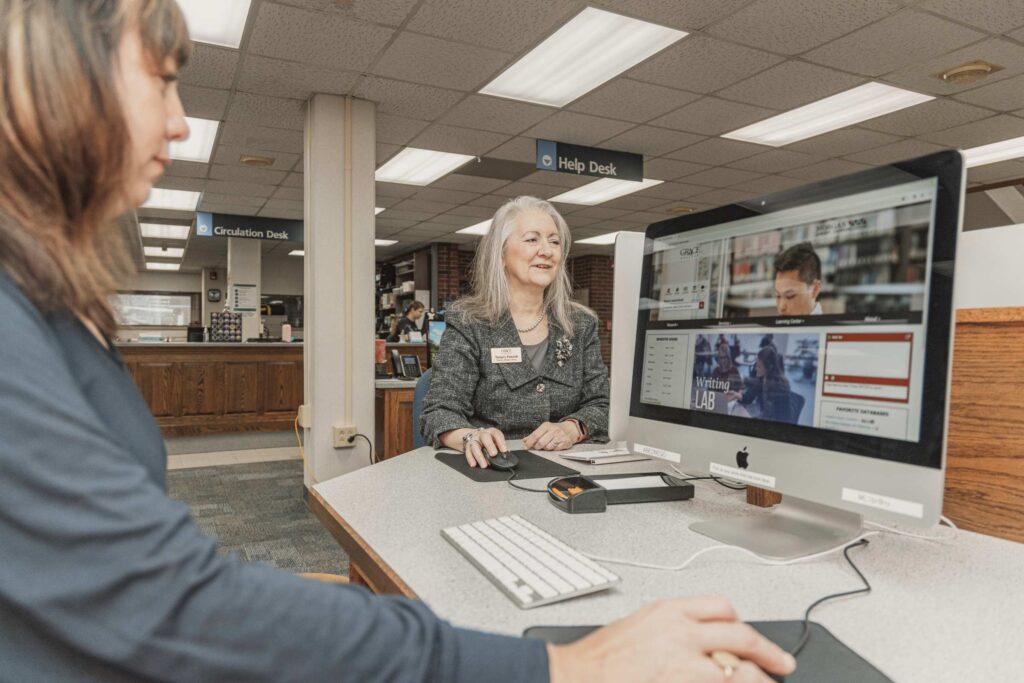
How Should Christian Students Think about Technology and Christianity?

We live in a constantly connected, technology-filled world. There is no aspect of our lives – physically, relationally, spiritually – that is not influenced by technology. Because of this, it’s worth asking as Christian students, how should we think about technology and Christianity?
Here to weigh in on Christianity and technology are Noah Zimmermann, a management information systems major at Grace College and intern with Winona IT, Heidi Miller, assistant professor of digital marketing at Grace, and Tonya Fawcett, director of library services at Grace. They suggest Christians consider the following four principles as they think about technology.
Think about how your engagement with technology aligns with your faith.
We first need to consider how technology fits into a Biblical worldview. God created us as His image-bearers to be set apart from the rest of creation. He gave us the unique ability to reason, create, steward, and live in relationship with Him and others. Most importantly, He created us to glorify Him with who we are and what we do with our lives.
“As Christians, it’s important that we do everything with integrity,” said Zimmermann. “We hold the responsibility to use technology for the goodness of God.”
Our use of technology reflects what we value in our lives. If we value glorifying God, how we use technology should reflect that priority.
According to Fawcett, it’s crucial to ask questions and consider our dependence on technology. She lists some questions a Christian could ask: “Does this harm my relationship with God? Am I as connected to God as I am to my technology?”
Technology is not neutral – it shapes us. Because of this, intentional assessment of how we use technology to support or inhibit our faith is crucial.
“Whatever we do repeatedly changes us,” said Fawcett. “God cares about what we do. We are called to live in the world, but we are not meant to consume everything the world produces.”
This includes being mindful of what goes into our minds and how that affects what we think about and how we treat others. If we are serious about “Taking all things captive to Christ,” as 2 Corinthians 10:5 says, assessing our use of technology is an important part of our spiritual lives.
Be open to the ways technology can assist you and make you more efficient in your work.
In his internship with Winona IT, Zimmermann uses Google and the database within the company to solve customers’ technology problems.
“These tools will always be there, and you can learn how to use them strategically to assist you in solving problems, not to stand by mindlessly and let them solve your problems for you,” said Zimmermann. “They should be a tool to propel you to success, not to hold you back from your full potential.”
Glorifying God in all we do means using technology to improve our work and not to hinder it. Recognizing technology’s strengths and opportunities facilitates excellence and innovation in our work.
“As Christians, we should have higher expectations for our work – our excellence should set us apart,” Miller added. “We must be discerning in how we use technology and always do our best.”

Consider establishing boundaries with technology.
Engaging with technology effectively requires learning how it works and how it can enhance your learning. This starts with understanding what technology can and cannot do for you.
“Search engines, AI, and databases can help you find an answer and even help you learn, but to fully grasp a new subject means that your mind is involved with the learning process,” said Fawcett.
It used to be that in order to find information one would have to physically visit a library and search through books. Now, we are overwhelmed with all the information in the world in our pockets. How do we manage it all? How do we narrow down all the information to what’s useful to us? Using research tools like Zotero, which organizes online sources, can be practical and time-efficient for the student, but the student needs to know how to research with those tools to find relevant information.
In her classes, Miller teaches her students how to create their own digital content without the help of AI. After they learn the foundations of creating marketing content, they can incorporate more tools into their process, including ChatGPT, Grammarly, and Google.
“There’s nothing like human content,” said Miller. “We have so much access to everything, but that can be a hindrance. It can be an enhancing tool, but we need to understand that it can be easily misused.”
By remaining aware of the current innovations and discussions in technology, students will be able to participate in technology and Christianity productively.
“God has created us to think, but we have to engage,” said Fawcett. “I think there’s a lot of opportunity with technology such as AI, but we have to be willing to experiment and learn about it rather than run from it.”
Be discerning about the information you share with technology
Another important aspect to consider with Christianity and technology is who has your information and what they are doing with it. Miller, who is currently doing her dissertation on consumer trust and privacy within digital marketing, explains, “We want personalized feeds and search results, but at the same time we want privacy from big tech companies.”
If something is free it usually means the product is you and your information. We have the power to make informed decisions on what platforms and tools we use.
If you’re not sure where to start with discerning which technology to use, Fawcett provides some questions to consider: “Why am I using this and for what purpose? How is it changing me? How is it affecting others? Does it fit with my values? Could I take 24 hours away from it?”
According to Fawcett, it’s healthy to implement boundaries and take breaks from technology regularly. This could look like a day off every week or setting screen time limits on your phone.
By learning about technology, recognizing its effects, and emphasizing its potential for good, we can use it in intentional ways that bring glory to God.
Looking for a college that thoughtfully engages with technology and Christianity? Learn more about Grace! Interested in centering a career around technology? Check out our computer science major.
Previous Post

